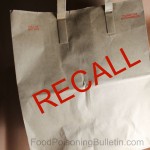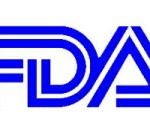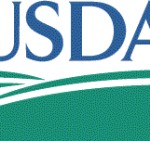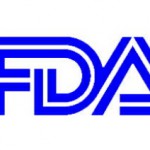This week's food recalls included a General Mills recall of 10 million pounds of flour for E. coli that was triggered by a 20-state E. coli outbreak; the expansion of SunOpta's sunflower seed recall for Listeria which triggered a number of secondary recalls and a number of recalls for foods with undeclared allergens. Food Recalls in the U.S. Pathogens The Meadow Gold Dairy plant in Boise is recalling Meadow Gold brand Old Style Whipping Cream and Meadow Gold Dairy Pure brand Whipping Cream and Half and Half due to insufficient pasteurization. Because of this problem, it is possible that the products could be contaminated with pathogens present in raw milk, including Salmonella, Campylobacter, Listeria or E. coli. An E. coli outbreak that has sickened 38 people in 20 states has … [Read more...]
Recalls of Organic Foods and All Foods on the Rise
According to a new report from Stericycle, recalls of organic foods for microbial reasons has increased in the past year. In fact, recalls of all foods is up significantly from the first quarter of 2015. That company analyzed data from the FDA and USDA for their study. According to the USDA, 70% of consumers think that food is safer or of high quality if it is labeled organic. But organic food is just as susceptible to bacterial contamination as conventionally grown food. There were 178 FDA food recalls in the second quarter of 2015, which is an increase of 47% from the previous quarter. Sixty-two percent of those recalls were for bacterial contamination, mostly for Salmonella and Listeria. Vegetables were 61% of the recall activity. Foods recalled by the USDA, which include meat, … [Read more...]
FDA Publishes Draft Guidance on Mandatory Recall Authority
The Food and Drug Administration (FDA) has published draft guidance for industry on mandatory food recall authority. The draft contains nonbonding recommendations. The mandatory food recall provisions are part of the Food Safety Modernization Act of 2011 (FSMA). Section 423 of the FD&C Act gives authority to the government to order a responsible party to recall food when FDA determines there is a reasonable probability that the food is adulterated or misbranded, and that use of the food will cause serious adverse health consequences or death to humans or animals. Before FSMA was enacted, FDA had to rely on corporations to voluntarily recall food products. This authority lets FDA force a recall when the responsible party chooses not to conduct a voluntary recall. The items that fall … [Read more...]
Fourth Quarter 2014 Recall Results
According to Stericycle, products recalled by the FDA were down, although units recalled were up, and the USDA recalls were the highest since Q1 2012. The company keeps track of food recalled in the U.S. for allergens, foreign material contamination, and bacterial contamination. The FDA recalls numbered 105 in the last three months of 2014, which is the lowest number all year. But 13.8 million units of product were recalled, which is a 142% increase from the third quarter. Undeclared allergens were the main reason for recall, at 50% of the total number. Manufacturers need to be more aware of ingredients sources and the supply chain to keep track of these ingredients. USDA issued 31 recalls for meat, poultry, and processed egg products, which is an increase of 48% from the third … [Read more...]
USDA Recalls Increased in 2014
The number of food recalls issued by USDA-FSIS increased in 2014 over previous years. Ninety-four recalls were issued, compared to 75 in 2013. Pounds of food recalled also increased, from 13.1 million pounds in 2013 to 18.7 million pounds in 2014. USDA oversees the safety of meat, poultry, seafood, and egg products. But there were fewer recalls overall for pathogenic bacteria and more recalls for undeclared food allergens and labeling issues. Most recalls were for undeclared allergens (6.15 million) and "other" reasons (9.64 million). The "other" reasons were lack of inspection, labeling problems, or failure to present import inspection paperwork. Most of the recalls last year were Class I. The government defines that class as "a health hazard situation in which there is a reasonable … [Read more...]
Undeclared Allergens the Leading Cause of FDA Recalls
The U.S. Food and Drug Administration (FDA) is using a three-pronged approach to reduce the number of leading cause of food recalls it requests: undeclared allergens. Ingredients such milk, eggs, fish, crustacean shellfish, tree nuts, wheat, peanuts, and soybeans cause serious, sometime life-threatening reactions for those with allergies. The agency says that by researching the source of labeling errors; working with industry to develop best practices; and exploring new allergen testing methods it can improve the labeling process and minimize the problem. All food regulated by the FDA is required by federal law to have labeling that identifies major food allergens. Products that don't are considered misbranded and can be seized by FDA, but most companies recall such food products … [Read more...]
In Canada, Ground Chicken Products Recalled for E. coli O157:H7
The Canadian Food Inspection Agency and Missing Link Extraordinary Sausage are recalling frozen, raw, ground chicken products for possible E. coli O157:H7 contamination. Consumers should not consume the recalled products. There have been four reported illnesses associated with the consumption of these products. The recalled products were sold in Alberta at the retail level. They are all Missing Link Extraordinary Sausage brand products with variable UPC numbers. They were all sold between July 14, 2014 and October 3, 2014, inclusively. They include Garlic, Garlic, & More Garlic Chicken Sausage in 454 gram packages; Garlic, Garlic, & More Garlic Chicken Sausage in 227 gram packages; Garlic, Garlic, & More Garlic Chicken Burgers in 340 gram packages, and Garlic, Garlic, & … [Read more...]
FDA Proposes Rule for Grocery Store Food Recall Notices
The FDA has issued advanced notice of proposed rulemaking to seek public input on part of the Food Safety Modernization Act of 2011. The FDA may require manufacturers and distributors to submit "consumer-oriented" information when a recall is issued that will help consumers accurately identify whether they have the food that has been recalled. The FDA will then prepare and publish on their website a one-page summary of the information to be printed by grocery stores and displayed. The summary must be displayed prominently within 24 hours after it is published in the web site. The FDA wants input on the content of the consumer-oriented information, when it will be required, the formats required, and how updates will be handled. They also want to define "grocery store", and how the … [Read more...]










